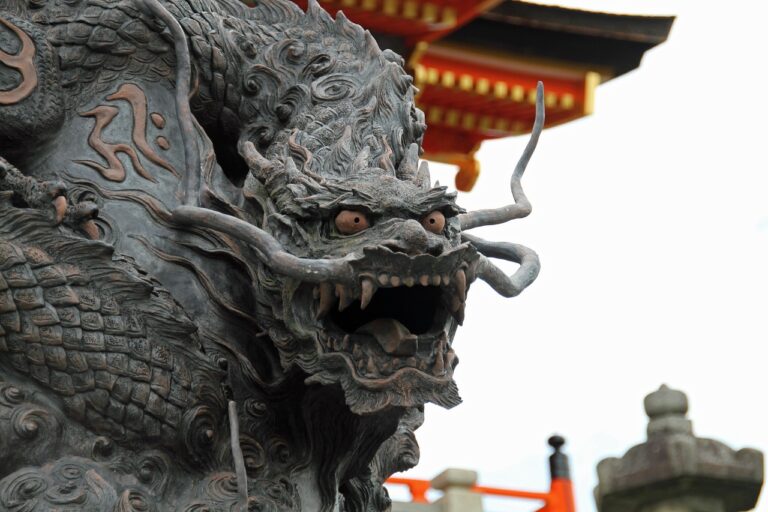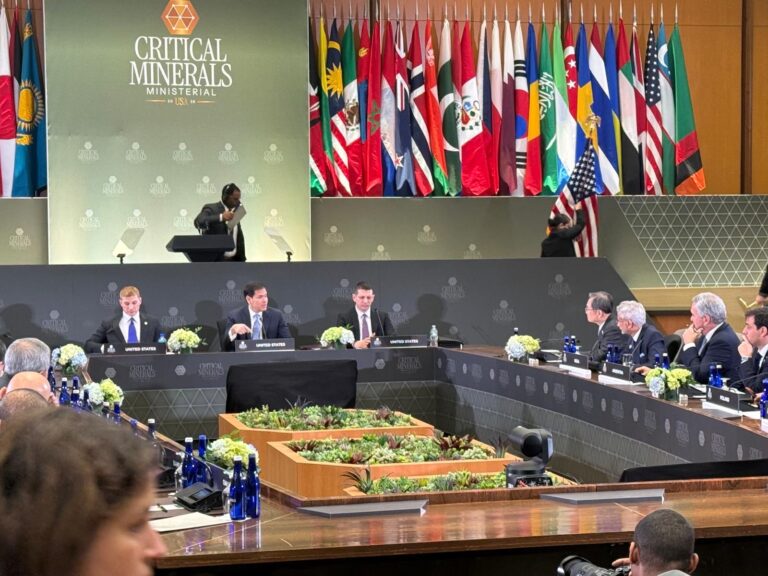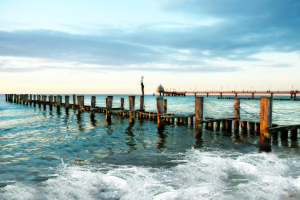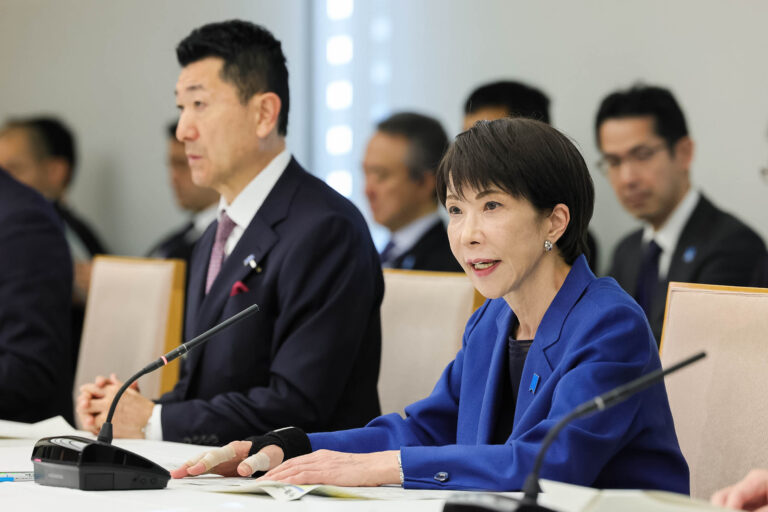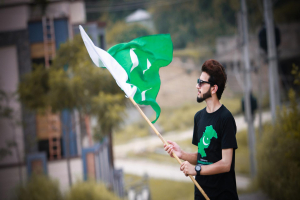
 By Venkatesh Raghavan
By Venkatesh Raghavan
The recently deposed Pakistan Prime Minister Imran Khan, who had gained popularity on the anti-West line of thought, criticizing Islamophobia is now taking his political battle to the streets, with many of his voters feeling disillusioned owing to the rising cost of living that has bitten into their daily bread.
While Khan attributed his ouster to a foreign conspiracy hatched by the United States and its allies, many voices from the public strongly felt that Khan had fallen out with the army, causing him to lose the turf war in the recently held no-confidence motion. “Without army support, it’s not possible for any Party to sustain its full term.”
As of date, no Pakistani Prime Minister has been able to serve his or her full five-year term. His ouster resulted in unrestrained jubilation in Pakistan’s opposition ranks as this was the first-ever occurrence of a Prime Minister being made to remit office on losing a no-confidence trust vote. Hailing it as a historic moment for the country, the new incumbent to office, Mian Muhammad Shehbaz Sharif emphasized that the top priority for him would be to rescue Pakistan from the throes of the economic crisis that it has plunged into.
People on the streets of Pakistan sounded expectant at the change of guard and hoped that the new government would provide succour from the spiralling price rise that had turned into a matter of major concern for every common man. Despite the fact that several corruption charges had been levelled against Shehbaz, people felt there was much to hope for from the new incumbent.
The united opposition ranks supported by Pakistan’s judiciary sounded triumphant over their successful bid in capturing power. The opposition Parties had come down heavily on Imran Khan’s stewardship owing to the country finding itself in the midst of a severe economic crisis.
It might be recalled that business observers and experts had voiced grave concern about Pakistan being reduced to a vassal state of China owing to the latter’s alarmingly increased proportion of business and industrial investments. People from the textile front had already voiced their fear that the heavy inflow of Chinese investments in Pakistan’s textile industry is likely to kill all local businesses and industrial houses.
Political observers, however, sounded a cautionary note, stating, “There is no room for turning euphoric. Pakistan has a long way to go when it comes to a complete economic recovery. It also has to overcome the crisis precipitated by low demand factors on both the domestic and global fronts.”
Hence, can the current political arrangement stay in place till the country is faced with the next round of general elections? It is anybody’s guess? Being assured of Army support to foster and bridge ties with the Western world, especially the United States, the civilian government is being left in place to control the damage caused by Prime Minister Imran Khan’s bungling on the international front.
As mentioned, Pakistan’s economy is going through a very fragile phase with an acute power shortage and state-enforced blackouts in various cities owing to a shortage of energy to fuel its power plants. The country no longer has funds to import oil or gas from overseas destinations. To make matters worse, retail inflation (including food inflation) has hit an all-time high of 13%.
Though the new coalition in place headed by Shehbaz has no magic wand to effect a turnaround in the country’s economic fortunes, the army’s plan for an interim solution till the next round of general elections is likely to tide over the mounting political instability issues faced by Pakistan.
Moreover, the latest terror attack on a van of the Confucius Institute at the Karachi University that resulted in the loss of lives of four persons including three Chinese nationals and injured another Chinese national sends ominous signals. The blast was carried out by a burqa-clad Baloch woman suicide bomber and the attack apparently deliberately targeted education, teachers, and the place of learning that had Chinese students. China today said its diplomats at the Chinese Foreign Ministry and diplomatic missions in Pakistan have asked the Pakistani side, through multiple channels, to take all-out measures to treat the injured and handle the follow-up matters of the victims, immediately make a thorough investigation of the incident, and apprehend and punish the perpetrators to the full extent of the law. Beijing told Islamabad to take more robust measures to ensure the safety of Chinese citizens and institutions in Pakistan and prevent such incidents from happening again.
The Karachi suicide bombing is seen as part of a Baloch pushback against the $54 billion China-Pakistan Economic Corridor that links Gwadar Port in Balochistan to China’s western Xinjiang region, and the banned Balochistan Liberation Army (BLA) claimed responsibility for the attack.
It is worth mentioning that during Imran’s regime, there were many attacks on the Chinese nationals in Balochistan. In July 2021, thirteen people including nine Chinese workers were killed when a bus carrying engineers in northwestern Pakistan was bombed. Just before that, in April 2021, a suicide bomb attack at a luxury hotel hosting the Chinese ambassador in Quetta had killed four and wounded dozens. The ambassador was unhurt. Earlier in 2020, Baloch separatists had attacked Pakistan’s Stock Exchange where the Chinese have major investments. This followed an attack at the Chinese consulate in Karachi on November 23, 2018, just about three months after Imran took over the reins of Pakistan.
Little surprise therefore that in his maiden speech after taking charge on April 11, 2022, Sharif said that his government will speed up the high-quality construction of the China-Pakistan Economic Corridor, making it a symbol of China-Pakistan friendship.
China on its part stated that it looked forward to working together with the Pakistani side ”to carry on the traditional friendship, deepen cooperation in various areas and build a high-quality China-Pakistan Economic Corridor together to forge an even closer China-Pakistan community with a shared future in the new era”.
After yesterday’s suicide bombing, a Chinese foreign ministry spokesperson stressed in Beijing today that “the iron-clad friendship between China and Pakistan is unbreakable and any attempt to undermine China-Pakistan mutual trust and cooperation and the building of the China-Pakistan Economic Corridor will never succeed”. He declared that the terrorists will pay a heavy price for their crimes.
Pakistani interim Prime Minister Shahbaz Sharif visited the Chinese Embassy in Pakistan last night to convey condolences, stressing that the Pakistani government is mobilizing all resources to conduct an in-depth probe into the incident. “We won’t rest until the culprits are hunted down and given exemplary punishment,” the Prime Minister said. He also assured complete cooperation with China to ensure sound work in handling the follow-up matters of the casualties and take further steps to strengthen the security work for Chinese personnel, projects and institutions in Pakistan.
Khan on his side is not lying low and has launched a tirade against the USA. Referring to the no-confidence motion as an instance of match-fixing, he has appealed to the masses to stay alert to the foreign conspiracy against the nation and help his Pakistan Tehreek-e-Insaf (PTI) to emerge from the woods and redeem control from the political crisis that has precipitated.
Imran Khan repeated that the conspiracy against the state of Pakistan had originated more than four months back, with a slew of defections from his PTI Party in addition to senior journalists from the country holding protracted discussions with the US Embassy envoys. He further informed that huge sums of money had transferred hands during the foreign agency’s attempt to “politically destabilize Pakistan.”
The incumbent Prime Minister, Shehbaz Sharif also faced flak from the outgoing Khan, who pointed out that there were multiple corruption charges that were filed against him. Shehbaz has taken over the mantle of his dynasty from his brother Nawaz Sharif, who faces graft and corruption charges.
Khan emerging as a third force and viable alternative to the two political dynasties that had held sway over Pakistan’s electoral politics came as a welcome relief for many who were ardently in favour of his anti-corruption stand. However, the prolonged Covid19 phase and the tumbling Pakistani economy resulted in massive inflation and job losses.
While Khan attributed the steep increases in prices to a global phenomenon which every country faced, there were some who pointed out that the steep nature of price rise was more pronounced in the case of Pakistan. Currently, Pakistan is steeped in an economic crisis with no signs of any mitigation happening any time soon. Can Shehbaz rise to the challenge? Only time will tell.
– with inputs from global bihari bureau


